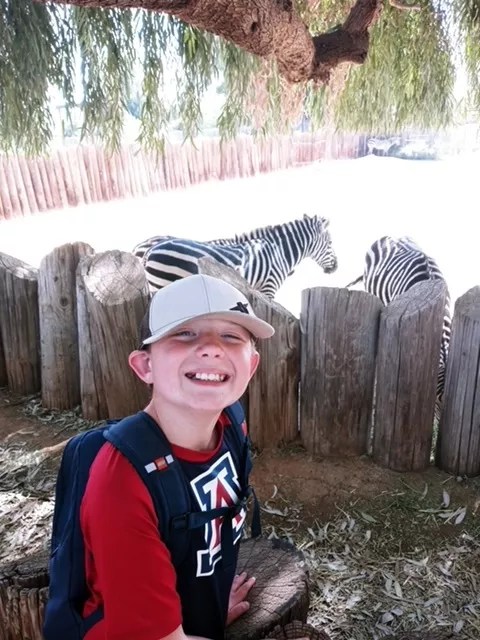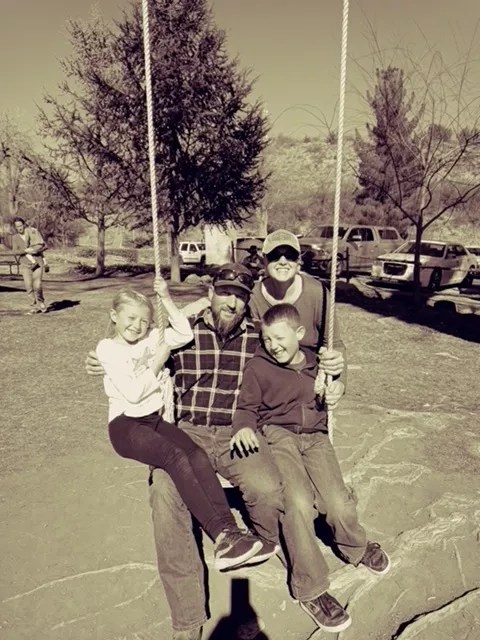
Andrea Light

Audio By Carbonatix
Joseph Verdone, a 63-year-old Scottsdale father, thought he was going to lose a kidney in April 2015.
That’s when he was diagnosed with cancer. But when his doctors opened him up seven months later, they were amazed, he recalled. Instead of a malignant tumor, the cancer that surgeons removed was gray and dead.
He credits his invention, a way to dissolve in water CBDA, THCA, and an entire host of cannabinoids, terpenes, and other beneficial compounds found in marijuana and hemp. Many are largely misunderstood and poorly studied.
Right now, Verdone claims no one else can do this in the way that he creates his product, C2W (Cannabis to Water), and the longtime fixture in the local and national auto industry is in no hurry to share how. All he’ll say is he’s built a machine to process hemp and cannabis oil into the water solution.
His cancer diagnosis forced the issue.
“I am highly allergic to everything, including almost every pain medication. So when I got cancer, I had no choice but to figure out how I was going to fix myself. The doctor tells me to go home and drink what I made because it would go right to the kidney and possibly get rid of my pain. I continued drinking the ‘water’ all the way up until November, when I had kidney surgery,” he recalled.
“I went in thinking I was going to lose a kidney and I still have one and a half of my kidneys. C2W killed the cancer,” Verdone said.
No science backs up his conviction. The research is spotty at best, and his conclusions are purely anecdotal, theoretical, and untested. If Verdone’s claims sound too good to be true, consider how much we just don’t know about the medicinal benefits of cannabis and hemp.
Dr. Vershalee Shukla, who works for HonorHealth and is a radiation oncologist, remains skeptical.
“(Cannabis) is really good at treating symptoms. It helps with nausea. Some people use it for skin reactions and inflammation,” she said. “As a treatment of a cancer, I wouldn’t trust it. There’s very little data. I wouldn’t recommend anyone going that route, but I’ve recommended it to my patients for nausea, skin reactions, and burns.”
Shukla added, “I treat a lot of cancer and I know what it takes. I know how to monitor responses. Even with some of the best treatment, cancer gets the best of some people. It takes a lot of skill and clinical trials before I recommend something for a patient.”
CBDA wasn’t even discovered until Raphael Mechoulam, a professor of medical chemistry at the Hebrew University of Jerusalem in Israel, was able to isolate it during research in the mid-1960s. He began looking at how CBDA could help those suffering from epilepsy, and much of that research was done abroad.
“We badly need well-established clinical trials with almost all cannabinoids,” Mechoulam said.
Mechoulam noted during a recent episode of the Cannabis Conversation podcast that “THCA is not psychoactive, contrary to THC. CBD is a very interesting compound. It acts on a long list of things that are of major importance in terms of therapeutics: anxiety, pain, depression, schizophrenia, and inflammation. Chances are, when using a new compound (such as in its acid form, CBDA), we can use lower doses. CBD has been approved for use in epilepsy.”
Lacking more hard science, Verdone points to stories from friends and relatives to conclude, “The water goes to where it’s needed.”
Andrea Light’s son Devin, now almost 11, was suffering from cortical dysplasia, a devastating form of epilepsy. It’s caused when the cerebral cortex does not form properly, and it results in frequent severe seizures.
Light needed a new way to help ease those seizures. Devin’s case is extreme and, for his family, devastating. The hardest-hit part of his brain was the area that governs vision.
“I remember standing in the hall with his neurologist listening to her explain all of this to me. Looking at the MRI on her computer and feeling like my world was crashing in. I couldn’t believe it – my sweet little baby was having seizures, I was looking at this image and could actually see the difference from his left and right brain. I was terrified for him,” Light said.
The scariest parts were yet to come.
The doctors at Phoenix Children’s Hospital immediately put Devin on phenobarbital, an extremely addictive medication that is supposed to work well for babies who have seizures. Light noticed her boy had adverse reactions and developed addictive behavior.
One of Devin’s doctors, Matthew Troester, vividly recalls the boy’s situation when he saw him.
“At that time, I was one of the few doctors in town that was willing to allow families to have their experience with some of the things that aren’t traditional Western medications,” Troester said, recalling he was happy to do anything to help.
“He was as close to dying from epilepsy as anyone I have ever seen. There were days where I was like, ‘Oh my God, I just hope he makes it through the day.’ He had so many seizures and when he had them, he wouldn’t breathe properly, he would turn blue, and it was awful,” Troester said.
Troester was open to the family experimenting with C2W, especially after listening to Dr. Sanjay Gupta in his 2015 documentary, Weed, explain how cannabis was helping children with epilepsy.
Devin underwent major surgery in June 2020, and Troester has not seen him since November 2021.
“If you put a gun to my head and asked what made (Devin) seizure-free, I would have said it was the surgery. Was that contributed to because of the other products he was taking? I don’t know. I can tell you that everything we were throwing at him from a traditional medical standpoint, almost of the medicines that are out there, they weren’t touching anything he was having. The only thing the family thought was helping was the THC and CBD products,” Troester said.
Prior to meeting Verdone, Light had tried Charlotte’s Web, a CBD product inspired by Charlotte Figi, a Colorado girl who had a rare form of epilepsy called Dravet syndrome.

The Light family.
Andrea Light
It didn’t help.
When Light did find a strain of cannabis or a CBD product that helped with Devin’s symptoms, the benefit was often short-lived. The dispensaries would either run out of it or the strain would become difficult to find.
It was often back to the drawing board. This is how Verdone heard about Devin on a Facebook group. He met the Lights at an International House of Pancakes just north of Phoenix in summer 2016.
His mother “said that he wasn’t doing too well, and she thought he was going to die,” Verdone said.
He recalled thinking, “Well, God had some new mission for me.” That mission became helping Devin realize his dream of returning to school. A close relationship developed, Light said.
“I was on the phone with [Verdone] for like two or three hours that first night we talked. He had so much information about what you can do with cannabis, like how he could give Devin THCA, which would not get him high,” she recalled.
“It was like nothing I had seen before and I think that is what intrigued me the most at first, but I was skeptical,” she said.
“C2W was different than anything we had ever used before because they were making the cannabis and CBDA into a water-soluble solution that could be further diluted. Devin was now absorbing more of the (THCA) and CBDA than he was able to with the oil-based tinctures,” Light said. “This was a game changer for Devin.”
The infused water enables Devin to need less THCA and CBDA than people may imagine. Verdone does not disclose Devin’s exact dosage because it’s unique to every patient. But Devin is currently taking a fraction of one dose for each full day.
He doesn’t take any other products using THC or CBD because the concentration in the water is about 1,000 times stronger than typical cannabis or hemp-derived products. That’s consistent with recent statements by Mechoulam that THCA and CBDA are much stronger than their more stable counterparts, THC and CBD.
Said Verdone, “Devin also gets the benefits of all the terpenes in the plant, which are just as important as all of the cannabinoids.” This is often referred to as the “entourage effect.”
There is simply no way to validate Verdone’s claims. The research isn’t there.
Mechoulam talks about how the entourage effect could provide additional benefits because “some of the terpenes are not active by themselves.”
Light looks no further than the quality of her son’s life for proof.
“To be completely honest, I am not sure my son would be alive today without the C2W,” Light said.
“It is giving him a chance to be a kid and have a life. We have made more progress toward seizure freedom than with anything we have tried before. Devin completed kindergarten, first, and second grade with only reading and writing deficits. Mathematically, he is at or beyond his peers. I believe with my whole heart my son is alive today because of this amazing medicine,” she said.
Last June 19, Verdone joined the Light family and members of their church at the family home in Cottonwood to celebrate a year of Devin being free of seizures. Devin remains seizure free and continues to thrive. He leads a relatively normal life while feeling none of the usual disorientation, drowsiness, or high a person might feel if they were using THC to treat pain.
Verdone never says that he can cure anyone of anything or make promises he can’t keep. But he thinks he’s found something special. The magic is the water. You can put water in anything, which makes the possibilities endless.
“What about ice cream?” Verdone asked with a smile. “I could put CBDA into ice cream and everyone would enjoy getting a consistent dose of medicine while eating their favorite flavor.”